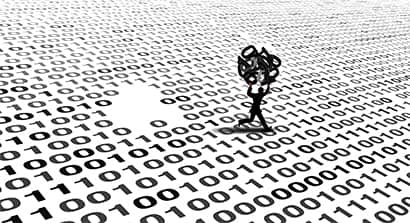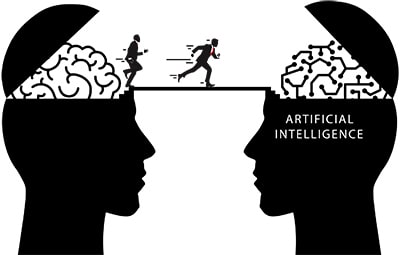Artificial Intelligence and Intellectual Property Rights
 Artificial Intelligence (AI) has transformed sectors such as healthcare, finance, entertainment, and legal services. But as content generated by AI becomes increasingly sophisticated, IP rights issues have become a topic of debate. Who owns the work created by AI? Can copyrights or patents be held by AI itself? How do current IP laws adjust to accommodate AI innovation? This article discusses these paramount legal challenges and analyzes how world jurisdictions are coping with the new AI environment.
Artificial Intelligence (AI) has transformed sectors such as healthcare, finance, entertainment, and legal services. But as content generated by AI becomes increasingly sophisticated, IP rights issues have become a topic of debate. Who owns the work created by AI? Can copyrights or patents be held by AI itself? How do current IP laws adjust to accommodate AI innovation? This article discusses these paramount legal challenges and analyzes how world jurisdictions are coping with the new AI environment.
Intellectual Property law mainly regulates the protection of intellectual creations, such as patents, copyrights, trademarks, and trade secrets. These laws have historically been developed for human inventors and creators. AI technologies have, however, challenged traditional systems by creating content independently, creating new products, and even simulating human-like creative processes.
The most important areas where AI intersects with intellectual property law are:
I. AI and Copyright Law
II. AI and Patent Law
III. AI and Trademarks
IV. 4.Trade Secrets and AI
V. 5.Ethical and Legal Issues in IP and AI Law
VI. 6.Regulatory Evolution of AI and IP Protection
AI and Copyright Law
Copyright law shields original literary, artistic, and musical creations, such as books, movies, music, and computer programs. In the majority of jurisdictions, copyright is assigned to human writers or corporate creators that hire creators. The issue arises: can a work created by AI be copyrighted, and if so, who should be the owner?
I. Global Responses to AI and Copyright
i. United States
The U.S. Copyright Office determined that AI-created works without any human involvement do not qualify for copyright protection. In 2023, the office denied a copyright registration request for an art piece that was created fully by AI, clarifying that U.S. copyright law requires human authorship.
ii. United Kingdom
In the UK, there is a special position, where AI-generated works are eligible for copyright but the author will be considered as the human who arranged for AI to produce the work.
iii. European Union
EU copyright law emphasizes human creativity. There is no express protection for AI-generated works, but EU legislators are working on new frameworks to tackle AI challenges.
iv. India
Indian copyright law does not recognize AI as an author, but AI-assisted works may be protected if a human demonstrates significant creative contribution.
II. The Role of Human Intervention
One of the possible solutions is to extend copyright protection to works created with AI assistance when human intervention can be proven in the creative process. This might mean an artist training an AI model or shaping its outputs. But the difficulty here is in setting the threshold of human involvement for copyright protection.
AI and Patent Law
I. The Patentability of AI-Generated Inventions
P atents safeguard new and useful inventions and give exclusive rights to inventors. With AI systems able to create innovative solutions, the question of utmost importance is whether AI can be an inventor.
atents safeguard new and useful inventions and give exclusive rights to inventors. With AI systems able to create innovative solutions, the question of utmost importance is whether AI can be an inventor.
i. In Thaler v. Commissioner of Patents, the U.S. and UK courts held that AI cannot be designated as an inventor because patent laws mandate a human inventor.
ii. The European Patent Office (EPO) denied patent applications created by AI, confirming that natural persons alone can be inventors.
iii. But Australia's Federal Court first held that AI could be an inventor, although this ruling was reversed on appeal.
II. Implications for AI-Generated Inventions
If AI inventions cannot be patented, firms could lose protection for AI-driven innovation. Some call for a new class of patents accepting AI-created inventions, and rights should go to the human programmer or the company using the AI.
III. AI and Prior Art
AI is also revolutionizing how prior art is searched by patent offices. AI-powered tools are capable of scanning enormous databases to find prior patents and make patent examination more efficient.
AI and Trademarks
I. AI-Generated Logos and Branding
Tools such as DALL·E and MidJourney using AI can create logos, branding designs, and advertising materials. Can a company trademark a logo it made with the aid of AI? Traditional trademark law demands original and distinctive marks, but AI-made logos might create disputes regarding ownership and authorship.
II. Deepfakes and Trademark Infringement
Artificial intelligence-generated deepfakes and voice-cloning technologies threaten trademark protection. The public and business personalities are adversely affected because artificial intelligence can mimic reality and thereby confuse consumers. Legal systems adapt to combat trademark infringement through artificial intelligence.
AI and Trade Secrets
I. AI Algorithms as Trade Secrets
Many companies rely on AI algorithms for business operations, keeping them as trade secrets rather than seeking patents. AI models like OpenAI’s GPT-4 and Google’s DeepMind operate under strict confidentiality agreements.
II. Risks of Data Leaks and AI Model Theft
As AI systems improve, risks related to AI model theft and data breaches grow. Competitors may attempt to reverse-engineer AI models, raising concerns about trade secret misappropriation.
Ethical and Legal Issues in AI and IP Law
I. Bias and Fair Use of AI-Generated Content
Training AI models using copyrighted material brings up fair use issues. Scrape online content, most AI tools utilize copyrighted material without authorization. Courts around the globe are determining whether the training of AI is fair use or copyright violation.
II. Liability for AI-Generated Content
Who is responsible for copyright infringement when AI produces plagiarized text? Who should be responsible if AI produces defamatory or deceptive information? These legal loopholes call for immediate regulatory attention.
III. The Future of AI and IP Law
The speedy development of AI requires revisions to IP laws. Some see the case for "machine-generated IP rights," and others propose bolstering human-oriented protections to prevent AI from becoming a substitute for human creators.
Regulatory Trends in AI and IP Protection
I. The EU's AI Act
The European Union is leading the way in AI regulation through its AI Act, which seeks to categorize AI risks and impose transparency on AI-generated content. The Act suggests more stringent regulations for high-risk AI uses, such as those affecting intellectual property.
II. The U.S. AI Executive Order
In 2023, America released an Executive Order on AI, which invited federal agencies to evaluate the role of AI on copyright and patent systems.
III. WIPO's Initiative for AI and IP
The World Intellectual Property Organization (WIPO) is positively exploring the application of AI to IP law. WIPO organized international talks in order to introduce international guidelines of AI and IP.
Conclusion
 The convergence of intellectual property and AI poses unprecedented legal issues. While AI continues to redefine creativity and innovation, the current IP legislation needs to be adapted to align technological progress with legal safeguards. Policymakers, companies, and lawyers have to work together to create a framework that maintains AI-driven development while protecting intellectual property rights. Future innovations in AI regulation will have a determinant effect on the international AI and IP framework. Through novel standards for copyright, reforms in patent law, or specialized trademark safeguards for AI, the future years will determine intellectual property's legal parameters of artificial intelligence
The convergence of intellectual property and AI poses unprecedented legal issues. While AI continues to redefine creativity and innovation, the current IP legislation needs to be adapted to align technological progress with legal safeguards. Policymakers, companies, and lawyers have to work together to create a framework that maintains AI-driven development while protecting intellectual property rights. Future innovations in AI regulation will have a determinant effect on the international AI and IP framework. Through novel standards for copyright, reforms in patent law, or specialized trademark safeguards for AI, the future years will determine intellectual property's legal parameters of artificial intelligence
 Русский
Русский
 English
English 官话
官话 português
português عربي
عربي
 Türk
Türk 






.jpg)










